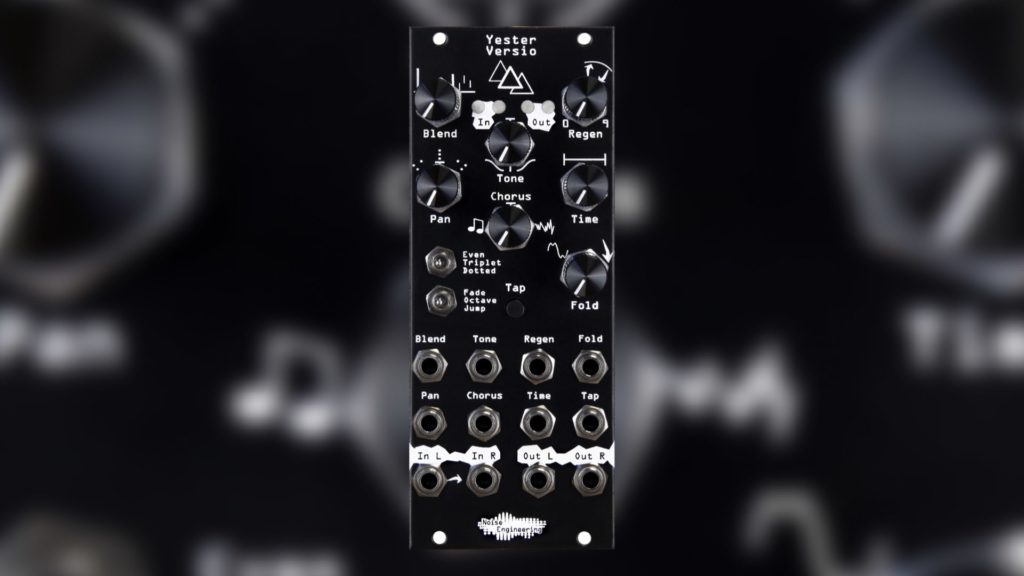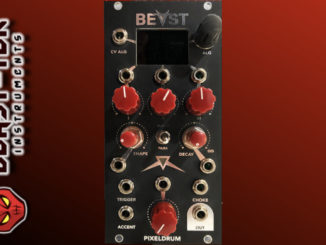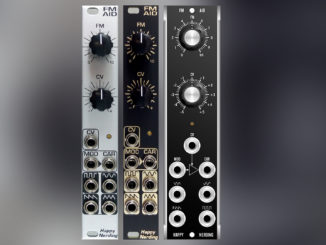Noise Engineering is expanding its mighty Versio DSP platform with Yester Versio, a new twisted three-tap delay module and firmware.
Digital is the new analog. You can almost say how good digital sounds in 2023. In addition, digital is way more interesting regarding features and flexibility. An excellent example are the Versio modules from Noise Engineering. Thanks to the Daisy platform in the background, the developers regularly offer new fascinating algorithms turning them in seconds into new modules.
Today Noise Engineering has already published the ninth algorithm for the Versio Platform. It’s called Yester Versio and is a three-tap delay with a twist. And as always, the firmware is available as a free download for Versio users or as a module with a matching front panel.
“We got a lot of requests for a simple delay for the platform — something that is easy to tame and a workhorse delay that you can put on almost any patch,” notes Noise Engineering’s Chief of Destruction, Markus Cancilla, continuing:“We wanted to create a delay that is immediate — plug it in and you have something you want to use. Just as important to us was making something that was versatile — something that could go from a beautiful and tame delay to the extreme, yet still be controlled. We spent so much time on every detail, getting the interactions of the parameters just right.”
Noise Engineering Yester Versio
Yester Versio is a three-tap delay with the usual suspects of functions: panning (Pan), delay feedback (Regen), and delay time (Time), but, of course, in typical Noise Engineering fashion. The Time control interacts with the Even/Triplet/Dotted switch to allow the delay timing to be adjusted for ideal syncing.
These also work with the Tap input — both a button and a jack input for syncing to clocks. Clearly, this makes it easy to sync Yester Versio to the rest of a user’s patch and create interesting rhythms.
Then, you can work with a tone knob – a DJ-style filter that lets users shape their sound with high- or low-pass filtering. The chorus is a bipolar control that adds a touch of clean pitch shifting or LFO-modulated chorus effects. Fold can add gentle saturation up to not-so-gentle folding. A module without “distortion” would not fit into the Noise Engineering cosmos. There is also a knob that adds slightly chaotic sub-octaves for more doom-laden sounds.
Like on the other Versio modules, it also has again two switches. Fade/Octave/Jump determines how the delay responds to timing changes and it’s CV controllable:
- Fade: for smooth interpolation with no pitch shift or artifacts
- Octave: rate-limits time changes to give octave-based harmonies
- Jump lets the delay respond as quickly as possible, introducing wonderfully glitchy artifacts
First Impression
More information here: Noise Engineering
Available at my partner





three is underrated as a number.